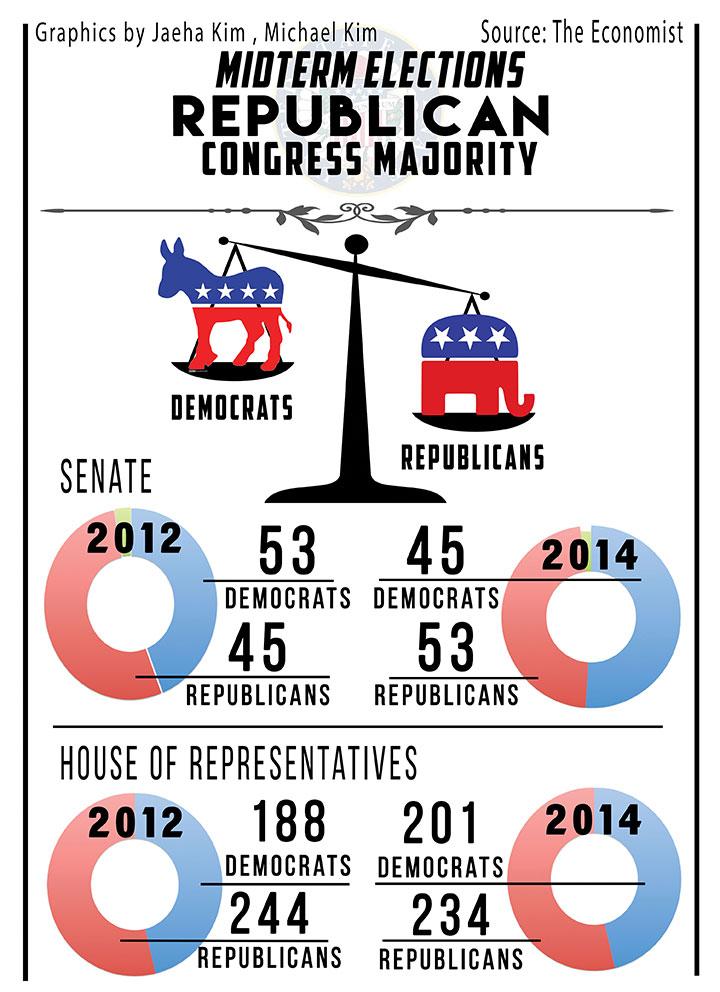The US Senate and House of Representatives midterm elections on Nov. 4 marked several groundbreaking turns for the Republican Party as well as the United States. Having expanded its majority in the House and gained a majority within the Senate, the Republican Party is now in control of Senate. Congress also has greater racial diversity among its representatives.
“Obama is going to become a lame duck president,” said Matthew Shin (11), Government and Politics student. “Now that the Republicans dominate Congress, he is not going to be able to make any changes. It’s going to be such a waste of two whole years. Obama and the Congress are going to continue countering one another, and nothing will get done. It’s a pity, because I believe in Democratic views, and I support Obama’s health care system.”
The House of Representatives, which already had a Republican majority, now consists of 244 Republican seats and 184 Democrat seats. The Senate, previously dominated by Democrats, now consists of 46 Democrat seats and 52 Republican seats. This year’s midterm elections were trying for the Democrats, who struggled to maintain their seats in typically Republican states. US president Barack Obama said that the Senate electoral map has never favored the Republican Party so heavily since the second term of Dwight D. Eisenhower’s presidency.
This year’s midterm elections mark the greatest number of wins for African-American Republicans in Congress: three of them have won seats. This is in fact the first time an African-American from the Deep South was elected to Senate since the Reconstruction in the nineteenth century. One of these three Republicans was Mia Love, who was chosen to represent Utah’s Fourth Congressional District at the elections, though her gender and race could have hindered her election.
In addition, the number of Latino representatives in the new 114th Congress is the largest in history. 29 Latinos hold seats in the House of Representatives and three hold seats in the Senate, making up a total of 32 Hispanics in Congress. Seven of the Latinos in the House are Republicans, most of them from Florida.
“I was kind of dismayed by the results because only 39 percent of the voting public voted, and 59 percent favored the Tea Party type of candidates,” said Paul Roberts, social studies teacher. “It’s hard to say whether the Democrats would have succeeded if the others voted, though. There are a lot of changes in America, including Obama’s health care system, and they’re generally controversial.”
Republican domination is likely to affect environmental policy: Democratic efforts to address climate change may be hindered. Republican Senator Mitch McConnell of Kentucky has won his sixth term, and he promised to cut down the budget of the Environmental Protection Agency. Republican domination may also have implications for Asia foreign policy, such as the strengthening of relations between the US and Vietnam, as well as more progression with the Trans-Pacific Partnership.
“If the 12 nations in the Asia-Pacific Economic Cooperation (APEC) summit come to some formal agreement, the US will have to get that formal agreement approved in the Senate,” Mr. Roberts said. “With the type of Senate we have now, it’s unlikely we’ll get such an agreement approved. What I don’t want to see is America withdrawing back into its borders.”

